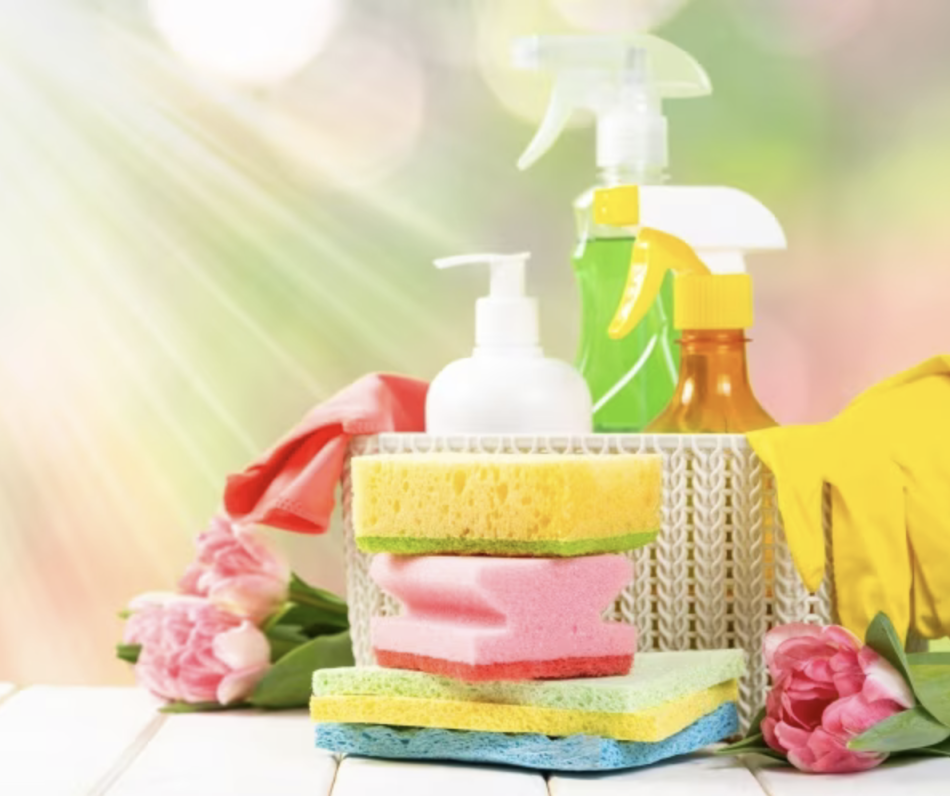Spring cleaning? Beware of this poisonous combo

Dreamstime
By Lynn Allison From Newsmax
If spring cleaning is on your agenda, do it safely. While bleach and vinegar are two of the most common household cleaners, mixing them will create a potentially deadly super-cleaner that puts your health at serious risk. This cleaning mistake is made by countless people each year, say experts, and accounts for thousands of calls to poison control centers.
According to TODAY, vinegar is made of acetic acid and water, and when you mix bleach with an acid, it forms poisonous chlorine gas. Chlorine gas is yellow-green in color and has a strong, irritating odor similar to bleach. Dr. Kelly Johnson-Arbor, a medical toxicology physician and interim executive director at the National Poison Control Center, says that chlorine in its gas form is poisonous and can be fatal at high enough concentrations.
When chlorine gas comes into contact with the moist tissues of our respiratory system, it produces hydrochloric acid and hypochlorous acid, which are significant irritants to the lungs and airways, says Johnson-Arbor. In severe cases, the acid can permanently damage these tissues.
The typical symptoms of chlorine gas exposure are coughing, irritation and burning in the throat, nose and eyes, difficulty breathing, watery eyes and chest tightness.
“In some cases, you might have dizziness or nausea and vomiting as well,” says the expert. “There have been cases of people who became very ill and had to be hospitalized for more than a week after mixing bleach with vinegar.” The Centers for Disease Control and Prevention says that in severe cases, a person can develop a buildup of fluid in the lungs, which can be fatal.
If you do accidentally combine vinegar and bleach, get yourself and everyone else in the house outdoors in the fresh air. “Before you go back into the area, make sure that it’s thoroughly ventilated ─ so open the windows and door to let the fresh air come in,” says Johnson-Arbor.
Staying safe when using household cleaners means reading the labels on cleaning products and using them only as directed. And don’t mix bleach with other household chemicals.
Samara Geller, senior director of cleaning science at the Environmental Working Group (EWG), tells Newsmax that certain cleaning products in general tend to be associated with greater hazards, including drain cleaners and clog removers, degreasers, and floor strippers.
“These products often contain harsh solvents, acids or alkalis that are corrosive and can burn and blind,” she says. “When these products are inhaled, or splashed on skin or into eyes, they can cause permanent damage.” Make sure these products are kept safely out of reach of children.
Geller recommends looking for environmentally safe cleaning products that are EWG VERIFIED. You can check the ratings and label information of your favorite cleaning products here.
“Do-it-yourself products from common kitchen ingredients, such as baking soda and vinegar, are excellent inexpensive choices,” adds Geller. “When combined, baking soda and water create a paste that will clean ovens and tackle toilet stains. If you plan to use a recipe, be sure to check which ingredients should not be mixed because they might cause harmful reactions.” EWG provides some specific DIY recipes for tough laundry stains and non-toxic home cleaners.
© 2023 NewsmaxHealth. All rights reserved.
For more on this story go to NEWSMAX
END
See also related article from Asbestos.com :
Many common household cleaners contain chemicals that provoke or worsen asthma or COPD symptoms, making cleaning uncomfortable and potentially dangerous. We’ve put together a list of less-harmful products to consider when you’re preparing to clean:
asbestos.com/mesothelioma/related-diseases/lung-safe-household-products/
AND
Pleural Mesothelioma Cancer – www.lanierlawfirm.com/mesothelioma/pleural/
Mesothelioma Treatment: lanierlawfirm.com/mesothelioma/treatment/





